Therapist & Psychiatrist Directory
Our expert therapists and psychiatrists can help individuals, couples, and families address a wide range of issues. In 8 offices and online throughout PA & NJ, our staff specializes in over 45 areas. Find the right fit for yourself.
Quick Search by Name:
Filter the results
Specialty
Therapy Type
Location
Age
Fee Range
Non-Traditional Hours

Kelly Davis, Esq., LSW
Kelly Davis, Esq., LSW
Do you ever feel that your heart and your mind want different things? In our sessions together, we will spend time with your different parts. Using the principles of Internal Family Systems, we will gently look at your conflicting desires and interests and understand how our various parts, even the ones that might not be…
Specialty Areas: Affairs and Infidelity, Anger Management, Career Counseling, Communication, Community Partnerships Initiative, Divorce, Grief, Loss, and Bereavement, LGBTQ+ Affirming, Life Transitions, Men's Issues, Mood Disorders, Parenting, Post-Traumatic Stress Disorder, Relationship Issues, Self-Discovery/Self-Analysis, Stress, Trauma, Work/Life Balance
View Profile
Virginia Mittnacht, LCSW
Virginia Mittnacht, LCSW
Virginia Mittnacht is a licensed clinical social worker living in Philadelphia. She has experience working with children, adolescents, and young adults who are impacted by mental, emotional, and/or behavioral health challenges. Ms. Mittnacht believes that building a strong and honest relationship with her clients stems from genuine, positive, and sustained growth. She thoughtfully works to…
Specialty Areas: ADD and ADHD, Chronic Illness, Communication, Depression and Anxiety, Grief, Loss, and Bereavement, Life Transitions, Mood Disorders, OCD, Relationship Issues, Self-Discovery/Self-Analysis, Stress, Trauma, Women's Issues, Work/Life Balance
View Profile
Becky Wu, MD
Becky Wu, MD
I am a board-certified psychiatrist dedicated to providing compassionate and evidence-based care. I offer comprehensive mental health care, including psychotherapy and medication treatment, based on your individual needs. I earned my undergraduate degree from the University of Toronto and my medical degree from the Medical University of the Americas. I completed my Adult Psychiatry residency…
Specialty Areas: ADD and ADHD, Depression and Anxiety, Diversity Issues and Intermarriage, Grief, Loss, and Bereavement, Life Transitions, Mood Disorders, OCD, Self-Discovery/Self-Analysis, Women's Issues, Work/Life Balance
View Profile
Margot Stein, LMFT
Margot Stein, LMFT
Margot Stein, LMFT completed the clergy track for post-graduate studies in marriage and family therapy. She is dedicated to helping individuals and families who are struggling with difference: autism, ADHD, behavior disorders, learning issues, non-traditional, nonbinary or gender queer orientation, artists, and others learning to listen to their inner calling. With warmth, compassion, and humor,…
Specialty Areas: ADD and ADHD, Children with Special Needs, Depression and Anxiety, Disabled People/People with Disabilities, Learning Disorders, LGBTQ+ Affirming, Parenting, Veterans, Active Military, and Their Families
View Profile
Florda Priftanji, LMFT
Florda Priftanji, LMFT
Whether you are working to smooth life transitions or build emotional stability, therapy is a resource that can offer guidance. Florda is an integrative therapist that empowers individuals to gain self-acceptance, independence, and courage to overcome challenges. Florda emphasizes the importance of learning effective communication skills to create and maintain healthy relationships. She aims to…
Specialty Areas: Communication, Depression and Anxiety, Life Transitions, Relationship Issues, Self-Discovery/Self-Analysis, Stress, Veterans, Active Military, and Their Families
View Profile
Alexander Coleman, MFT
Alexander Coleman, MFT
If you’re seeking insight, practical tools, and the genuine feeling of being heard and understood by a therapist, you’ve landed in the right place. I take pride in embodying all three of these characteristics and strive to incorporate them into my therapy work. Whether you’re grappling with relationship challenges or facing personal struggles, I aim…
Specialty Areas: Affairs and Infidelity, Anger Management, Career Counseling, Communication, Depression and Anxiety, Grief, Loss, and Bereavement, Life Transitions, Men's Issues, Parenting, Post-Traumatic Stress Disorder, Relationship Issues, Self-Discovery/Self-Analysis, Sex and Love Addiction, Stress, Work/Life Balance
View Profile
Lisa Handler, PhD, LMFT
Lisa Handler, PhD, LMFT
Lisa works with individuals and couples of all ages who are experiencing challenges in their lives and/or relationships. She enjoys working with a diverse group of clients and welcomes those who are: challenged or stuck in familial or intimate relationships; exploring their relationship to work (especially academia); experiencing anxiety and/or depression; working through young adulthood;…
Specialty Areas: LGBTQ+ Affirming, Life Transitions, Men's Issues, Relationship Issues, Self-Discovery/Self-Analysis, Veterans, Active Military, and Their Families, Women's Issues
View Profile
Nina Fortuna, LMFT
Nina Fortuna, LMFT
Nina Fortuna, LMFT, is a licensed relational therapist working with individuals, couples, and families to support their therapeutic goals. Nina is an EMDR-certified therapist. Nina has an innate curiosity for the life experiences of those she works with. Together with Nina, you will explore the parts of yourself that feel separate or different from how…
Specialty Areas: Depression and Anxiety, Post-Traumatic Stress Disorder, Relationship Issues, Self-Discovery/Self-Analysis, Stress, Trauma
View Profile
Bea Hollander-Goldfein, PhD...
Bea Hollander-Goldfein, PhD, LMFT, CCTP, APIT
Dr. Hollander-Goldfein is a licensed clinical psychologist and a licensed marriage and family therapist. Dr. Hollander-Goldfein has provided individual and relationship therapy for more than 30 years and specializes in trauma, marital/relationship conflict, sexual dysfunction, and infertility/adoption. Dr. Hollander-Goldfein’s integrative therapy style incorporates affective, cognitive, and behavioral approaches. Dr. Hollander-Goldfein is also the Director of…
Specialty Areas: Adoption, Affairs and Infidelity, Communication, Infertility, Post-Traumatic Stress Disorder, Relationship Issues, Sexual Difficulties, Trauma, Veterans, Active Military, and Their Families
View Profile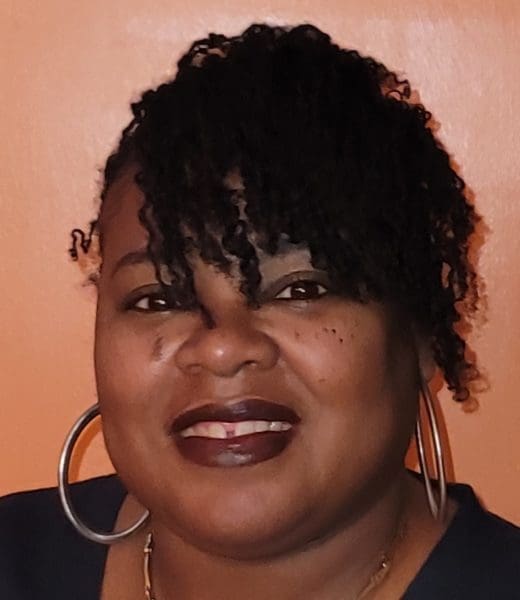
April Piercy, PhD, MFT
April Piercy, PhD, MFT
Dr. April Piercy is a pre-licensed Marriage & Family Therapist who has experience working with individuals, couples, families, and psychoeducational groups. Dr. Piercy has over 15 years of experience in human services, where she has worked as a domestic violence educator, mental health counselor, social worker, and adjunct faculty member. Dr. Piercy’s goal is to…
Specialty Areas: Anger Management, Communication, Depression and Anxiety, Grief, Loss, and Bereavement, Interpersonal Violence/Abuse, Relationship Issues, Sexual Abuse, Stress, Trauma, Women's Issues
View Profile
Amy Leonard, LMSW
Amy Leonard, LMSW
If you are feeling stuck, alone, or confused about yourself or your relationships, then therapy could be a helpful next step for you. I would love to help you explore your story and learn how to tap into your ability to grow and heal. My style is warm, conversational, and relational, because I believe the…
Specialty Areas: Communication, Depression and Anxiety, Diversity Issues and Intermarriage, Grief, Loss, and Bereavement, Life Transitions, Relationship Issues, Self-Discovery/Self-Analysis, Stress, Trauma
View Profile
April Westfall, PhD
April Westfall, PhD
April Westfall, PhD, (she/her/hers) is a licensed psychologist in PA and maintains and active and full clinical practice of adult individuals and couples at both our University City and Wynnewood Offices. Clinical specialty areas include: anxiety and depression, including bi-polar disorder; trauma, including its resolution through the use of EMDR; chronic illness; grief/loss; gay/lesbian and…
Specialty Areas: Affairs and Infidelity, Chronic Illness, Communication, Depression and Anxiety, Diversity Issues and Intermarriage, Divorce, Grief, Loss, and Bereavement, LGBTQ+ Affirming, Life Transitions, Mood Disorders, Relationship Issues, Trauma, Veterans, Active Military, and Their Families
View Profile
Bianca Williams, MFT
Bianca Williams, MFT
My practice experience must encompass feeling safe, supported, and free of judgment or “my way or the highway” thinking. My goal is to work collaboratively with you, showing up as both an advocate and fellow brainstormer as I witness you become more and more aware that you are truly the expert in your own life….
Specialty Areas: Anger Management, Communication, Depression and Anxiety, Grief, Loss, and Bereavement, Life Transitions, Men's Issues, Relationship Issues, Self-Discovery/Self-Analysis, Stress, Trauma, Women's Issues, Work/Life Balance
View Profile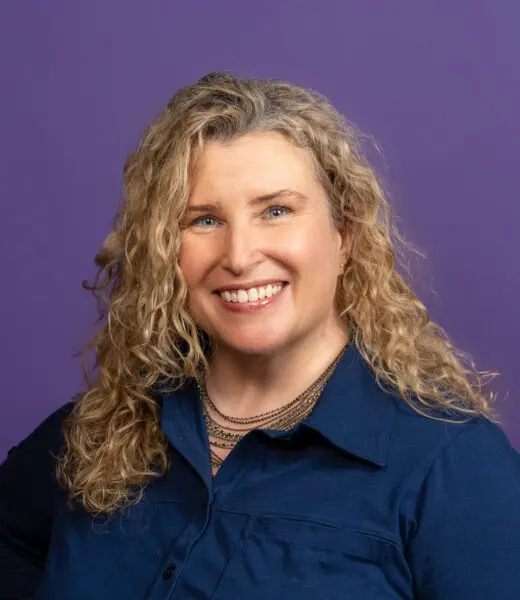
Kristine Seitz, MEd, MSW, LSW
Kristine Seitz, MEd, MSW, LSW
Looking for a therapist can be a vulnerable time. Thank you for taking the first step. I believe that our relationships are the cornerstone of our lives. This includes our relationship with our self, our family, our partner(s), our friends, and our community. I am an empathetic, collaborative, and strengths-based therapist. Through a systemic approach,…
Specialty Areas: Affairs and Infidelity, Depression and Anxiety, Grief, Loss, and Bereavement, LGBTQ+ Affirming, Men's Issues, Relationship Issues, Sexual Abuse, Sexual Difficulties, Technology, Trauma, Veterans, Active Military, and Their Families, Women's Issues
View Profile
Dr. Martha S. Rinehart, MA,...
Dr. Martha S. Rinehart, MA, LMFT
Dr. Rinehart strives to help individuals, couples and families undergoing life transitions: those struggling with issues of identity, marriage, parenting, promotion, aging, retirement, and loss. Her goal is to empower clients to find increased meaning and purpose in their lives by helping them make sense of their past, strengthen their meaningful relationships, and improve their ability…
Specialty Areas: Affairs and Infidelity, Communication, Depression and Anxiety, Divorce, Grief, Loss, and Bereavement, Infertility, LGBTQ+ Affirming, Life Transitions, Parenting, Relationship Issues, Remarried/Blended Issues, Self-Discovery/Self-Analysis, Stress, Veterans, Active Military, and Their Families
View Profile
Mike Butera, LMFT
Mike Butera, LMFT
Mike supports the mental and relational wellness of individuals, couples, and families. He provides unique and creative ways to guide therapy participants through life’s inevitable challenges. He shapes space for a collaborative, culturally sensitive, and trauma-informed therapeutic experience that is tailored to each person. He strives to foster emotional safety and relational attunement by constructing…
Specialty Areas: Artists and Athletes, Communication, Community Partnerships Initiative, Community Trauma Response, Depression and Anxiety, Divorce, Life Transitions, Men's Issues, Relationship Issues, Self-Discovery/Self-Analysis, Trauma, Veterans, Active Military, and Their Families
View Profile
Jane (Jen) Fox, MDiv, LMFT
Jane (Jen) Fox, MDiv, LMFT
Jane Fox earned her post-graduate certificate in Marriage and Family Therapy at Council for Relationships and is an ordained pastor through the Presbyterian Church (USA). In the therapeutic setting, whether seeing an individual, couple or family, she focuses on helping her clients understand their role in their family and work systems. Through narrative, emotional focus…
Specialty Areas: Anger Management, Communication, Depression and Anxiety, Diversity Issues and Intermarriage, Grief, Loss, and Bereavement, LGBTQ+ Affirming, Premarital Issues, Relationship Issues, Stress, Veterans, Active Military, and Their Families, Women's Issues
View Profile
Marissa Kos, LSW, RN
Marissa Kos, LSW, RN
Marissa works with individuals as they navigate challenging emotional experiences or life circumstances by offering a safe environment to explore contributing dynamics and factors. She believes that her clients know themselves best and strives to understand the origins of their emotional experiences and the impact these may have on daily life and connection to others….
Specialty Areas: Chronic Illness, Communication, Depression and Anxiety, Grief, Loss, and Bereavement, LGBTQ+ Affirming, Life Transitions, Women's Issues
View Profile
Caitlin Rice, MSS, LCSW
Caitlin Rice, MSS, LCSW
Caitlin Rice is a licensed clinical social worker and graduate of Bryn Mawr College School of Social Work and Social Research. She is a warm, authentic, and compassionate therapist. Caitlin creates a safe space to help clients explore and enrich their relationships with different parts of themselves and with others. Caitlin is an integrative therapist…
Specialty Areas: Children with Special Needs, Chronic Illness, Communication, Depression and Anxiety, LGBTQ+ Affirming, Life Transitions, Relationship Issues, Stress
View Profile
Tessa Kinsey, LMFT
Tessa Kinsey, LMFT
As a systemically oriented clinician, Tessa is attentive to her client’s social and relational contexts. Tessa employs a non-pathologizing approach that validates your unique context while holding hope for the changes you want to implement in your life. She is experienced in working with women and couples who are navigating life transitions of their 20s…
Specialty Areas: Artists and Athletes, Communication, Depression and Anxiety, Grief, Loss, and Bereavement, LGBTQ+ Affirming, Life Transitions, Relationship Issues, Trauma, Women's Issues
View Profile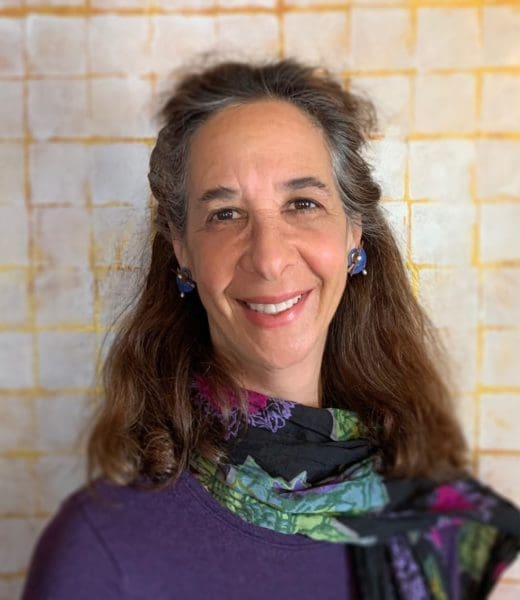
Carla Krash, MSS, LCSW, MFA
Carla Krash, MSS, LCSW, MFA
Whether you want to clean out your closet, your bedroom, or your whole house, with my support and guidance, I will help you identify goals that are vital, realistic, and achievable. I provide a warm, safe, and non-judgmental space in my work with individuals to explore difficult feelings and life situations. My style is conversational…
Specialty Areas: Adoption, Artists and Athletes, Communication, Depression and Anxiety, Divorce, Infertility, Parenting, Relationship Issues, Self-Discovery/Self-Analysis, Stress, Work/Life Balance
View Profile
Jamie Rose, MAC, LMFT
Jamie Rose, MAC, LMFT
Jamie Rose is a dedicated professional specializing in systemic and integrative counseling for individuals, couples, and families. With a master’s degree in Biblical Counseling and postgraduate expertise in Marriage and Family therapy, she skillfully combines a faith perspective with an inclusive approach for non-religious clients. In the counseling room, Jamie collaborates with clients, drawing upon…
Specialty Areas: Communication, Depression and Anxiety, Infertility, Life Transitions, Parenting, Relationship Issues, Veterans, Active Military, and Their Families, Women's Issues
View Profile
Lenny Schnier, LSW
Lenny Schnier, LSW
I have an integrative approach to therapy, which means I adapt the therapeutic process to the unique needs of each client. Some frameworks I pull from are systemic, narrative, relational, trauma-informed, and person-centered. It is important to me that therapy is a space where genuineness, directness, empathy, and sometimes humor can thrive. I am passionate…
Specialty Areas: Artists and Athletes, Chronic Illness, Communication, Community Partnerships Initiative, Depression and Anxiety, Grief, Loss, and Bereavement, LGBTQ+ Affirming, Life Transitions, Relationship Issues, Self-Discovery/Self-Analysis, Stress, Trauma, Work/Life Balance
View Profile
Carol Blum, M.Ed., CAC, MFT...
Carol Blum, M.Ed., CAC, MFT, LPC
Carol is an Individual, Couple, and Family Therapist who works with an integrative approach. This includes quieting the mind and calming the body through deep relaxation and mindfulness training. Carol also uses Internal Family Systems to help clients recognize their many Parts and to bring harmony to all Parts of Self. Carol is recognized for…
Specialty Areas: Addiction and Substance Abuse, Depression and Anxiety, Grief, Loss, and Bereavement, Trauma, Veterans, Active Military, and Their Families
View Profile
Kimberly Holt, MS, LMFT
Kimberly Holt, MS, LMFT
Kim Holt is a Couple and Family Therapist who is compassionate, thoughtful, and dynamic in her work with individuals, couples, and families. Kim is systemically trained and employs an integrative approach to supporting clients in their therapeutic goals. Using warmth, curiosity, and humor, Kim seeks to provide a safe and affirming space for collaboration and…
Specialty Areas: Addiction and Substance Abuse, Affairs and Infidelity, Communication, Depression and Anxiety, Grief, Loss, and Bereavement, Mood Disorders, Parenting, Relationship Issues, Veterans, Active Military, and Their Families
View Profile
Darrell J. Carson, LMFT
Darrell J. Carson, LMFT
Darrell Carson is a couple and family therapist who works with individuals, couples, and families to untangle an array of challenges. He works collaboratively with clients, meeting them where they are, while creating a warm, calm, and welcoming space to help facilitate positive change. He is deeply committed and intentional in helping clients towards accomplishing…
Specialty Areas: Anger Management, Communication, Depression and Anxiety, Interpersonal Violence/Abuse, Life Transitions, Relationship Issues, Work/Life Balance
View Profile
Maura Dunfey, DO
Maura Dunfey, DO
Dr. Maura Dunfey is board certified in General Psychiatry and Child and Adolescent Psychiatry, and has an additional certification as a Child and Family Therapist. Dr. Dunfey provides comprehensive evaluations of children, adolescents, and adults. She works collaboratively with individuals, families, pediatricians, and other therapists. She specializes in treating patients with depression, anxiety, obsessive-compulsive disorders, eating…
Specialty Areas: ADD and ADHD, Depression and Anxiety, OCD
View Profile
Patty Peach, LMFT
Patty Peach, LMFT
Ms. Peach has been practicing as a therapist for more than 30 years, working with individuals, couples, families, and children. Her areas of expertise include anxiety, depression, trauma, grief and loss, life cycle/developmental issues, relational distress/conflict, child and adolescent behavior problems, personal/spiritual growth, and gender issues. Patty believes that life is about exploring, building, and…
Specialty Areas: Depression and Anxiety, Grief, Loss, and Bereavement, Life Transitions, Men's Issues, Relationship Issues, Trauma, Women's Issues
View Profile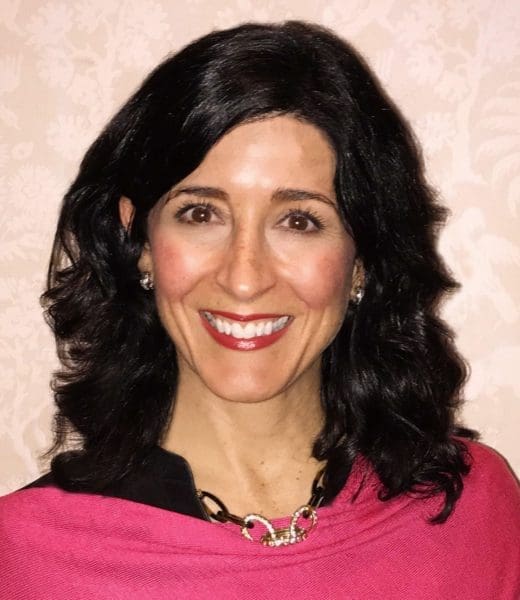
Alexis W. V. Bové, MS, JD, ...
Alexis W. V. Bové, MS, JD, LMFT
Alexis Bové is a compassionate, empathic, and engaging therapist whose approach is collaborative and supportive while challenging clients to meet their therapeutic goals. She believes in the importance of fostering a safe, secure environment where clients feel comfortable sharing their vulnerabilities. Alexis takes a systemic approach to her work with individuals, couples, and families, addressing…
Specialty Areas: Affairs and Infidelity, Communication, Depression and Anxiety, Divorce, Life Transitions, Parenting, Relationship Issues, Veterans, Active Military, and Their Families
View Profile
Eric Devon, MD
Eric Devon, MD
Dr. Eric Devon attended medical school at the University of Miami Miller School of Medicine, graduating in 2010. He went on to complete his General Psychiatry Residency at the University of North Carolina in 2014 and Fellowship in Consultation-Liaison Psychiatry at the University of Pennsylvania in 2015. He has remained in the Philadelphia area since…
Specialty Areas: Addiction and Substance Abuse, Chronic Illness, Depression and Anxiety, Mood Disorders, Post-Traumatic Stress Disorder, Veterans, Active Military, and Their Families
View Profile
Michele Southworth, JD, LMFT
Michele Southworth, JD, LMFT
Ms. Southworth is a licensed marriage and family therapist and a divorce mediator, with more than 30 years’ experience. She is trained in EMDR, a form of therapy that is helpful in reprocessing difficult memories and emotions. Ms. Southworth is also the Director of CFR’s Post Graduate Certificate Program in Marriage and Family Therapy, which is…
Specialty Areas: Artists and Athletes, Career Counseling, Divorce, Grief, Loss, and Bereavement, Life Transitions, Men's Issues, Post-Traumatic Stress Disorder, Self-Discovery/Self-Analysis, Trauma, Veterans, Active Military, and Their Families, Women's Issues
View Profile
Michael Antzis, MD
Michael Antzis, MD
Note: Dr. Antzis is not currently accepting new clients.
Specialty Areas: ADD and ADHD, Depression and Anxiety, Mood Disorders, OCD, Post-Traumatic Stress Disorder, Stress, Work/Life Balance
View Profile
Anneliese Sorrentino, MSS, ...
Anneliese Sorrentino, MSS, LMFT
Life is both beautiful and hard, and our relationships (past and present) shape how we experience and navigate its many challenges, for better and for worse. Therapy offers a unique relationship, the central purpose of which is to support your growth and help you form more secure and satisfying connections – to yourself and others. My…
Specialty Areas: Chronic Illness, Depression and Anxiety, Grief, Loss, and Bereavement, Life Transitions, Post-Traumatic Stress Disorder, Relationship Issues, Self-Discovery/Self-Analysis, Stress, Trauma, Veterans, Active Military, and Their Families, Women's Issues, Work/Life Balance
View Profile
Lucy S. Raizman, MSW, LCSW,...
Lucy S. Raizman, MSW, LCSW, LMFT, CST
Ms. Raizman has over 30 years of experience working with individuals, couples and families as a licensed clinical social worker, licensed marriage and family therapist, and sex therapist. Her areas of special interest and experience include couple and sex therapy, separation/divorce and life transitions, infidelity/affairs, stress reduction, and the use of EMDR, mindfulness-based and mind-body…
Specialty Areas: Affairs and Infidelity, Divorce, Life Transitions, Sex and Love Addiction, Sexual Difficulties, Stress, Trauma, Veterans, Active Military, and Their Families
View Profile
Gabrielle Hoang, MFT
Gabrielle Hoang, MFT
Hello! Navigating emotions, relationships, and the complexities of lived experiences can feel overwhelming. As a pre-licensed marriage and family therapist, I specialize in working with diverse individuals, couples, and families who seek support on this journey. Being a child of immigrants myself, I intimately understand the unique struggles that come with being raised by immigrant…
Specialty Areas: Affairs and Infidelity, Career Counseling, Depression and Anxiety, Diversity Issues and Intermarriage, Grief, Loss, and Bereavement, LGBTQ+ Affirming, Life Transitions, Men's Issues, Relationship Issues, Remarried/Blended Issues, Self-Discovery/Self-Analysis, Trauma, Veterans, Active Military, and Their Families, Women's Issues, Work/Life Balance
View Profile
David MacFarlane, MEd
David MacFarlane, MEd
David MacFarlane, MEd is a Licensed Psychologist. Mr. MacFarlane graduated with a Master’s in Counseling Psychology from Temple University and has been licensed in Pennsylvania since 1993. He studied Comprehensive Family Therapy with Sam and Diana Kirschner and is thoroughly familiar with systemic approaches to psychotherapy. Mr. MacFarlane began his career as a therapist in…
Specialty Areas: Communication, Depression and Anxiety, LGBTQ+ Affirming, Men's Issues, Parenting, Relationship Issues, Remarried/Blended Issues
View Profile
Barbara Barry, MEd, LMFT
Barbara Barry, MEd, LMFT
Barbara Barry is a sensitive, and caring therapist, affirming each person’s capacity for change and growth. Her approach is grounded in compassion, non-judgmental presence and collaboration. She supports clients as they gain insight, identify new ways to move forward and transform their relationship with self and others. Ms. Barry received her Master’s degree in Counseling…
Specialty Areas: Addiction and Substance Abuse, Communication, Relationship Issues, Remarried/Blended Issues, Self-Discovery/Self-Analysis, Trauma, Veterans, Active Military, and Their Families, Women's Issues
View Profile
Allen-Michael Lewis, LMFT, ...
Allen-Michael Lewis, LMFT, MS, AS
Allen Lewis, LMFT, AS is a Licensed Marriage & Family Therapist and AAMFT Approved Clinical Supervisor providing tele-therapy services to clients in PA, NJ, DE, FL, and NY. Allen is collaborative in working with his clients toward the change they would like to see in themselves, their relationships, and their communities. He is a systemic-oriented…
Specialty Areas: Adoption, Diversity Issues and Intermarriage, LGBTQ+ Affirming, Life Transitions, Men's Issues, Self-Discovery/Self-Analysis, Sexual Abuse, Veterans, Active Military, and Their Families, Work/Life Balance
View Profile
John McWilliams, MSS, LCSW
John McWilliams, MSS, LCSW
I am passionate about helping adults of all ages navigate the transitions in their lives, approaching my work from the perspective that we all seek to realize our full potential. I help clients find solutions to what’s blocking their path and compromising their joy. I have been successful in helping people, including those in the…
Specialty Areas: Addiction and Substance Abuse, LGBTQ+ Affirming, Relationship Issues, Sex and Love Addiction, Sexual Difficulties, Trauma
View Profile
Sarafina Kietzman-Nicklin, ...
Sarafina Kietzman-Nicklin, LMFT
Sarafina has a Masters in Family Therapy from Thomas Jefferson University. There, she focused on a systemic approach to therapy that allows her to examine the whole of people’s life experiences, including past and present relationships, and how they currently impact an individual’s mental health. Sarafina combines a macro approach, identifying larger values and goals,…
Specialty Areas: Addiction and Substance Abuse, Affairs and Infidelity, Depression and Anxiety, Divorce, Life Transitions, Mood Disorders, Relationship Issues, Remarried/Blended Issues, Self-Discovery/Self-Analysis, Sexual Difficulties, Stress, Trauma, Women's Issues
View Profile
Sloane Previdi, LSW, MFT
Sloane Previdi, LSW, MFT
If you feel distressed, overwhelmed, anxious, or unsure of exactly how you feel, I can help you understand these feelings and take steps to feel better. I provide you with a safe and supportive space to explore feelings that may be difficult to express to others. I actively and openly listen to your perspective and…
Specialty Areas: Communication, Depression and Anxiety, Divorce, Grief, Loss, and Bereavement, Life Transitions, Parenting, Relationship Issues, Remarried/Blended Issues, Self-Discovery/Self-Analysis, Stress, Veterans, Active Military, and Their Families, Women's Issues
View Profile
Wanda Sevey, MDiv, LMFT
Wanda Sevey, MDiv, LMFT
Wanda (she/her/hers) affirms that counseling is most effective when you ‘come as you are’ with all your strengths, challenges, life stories, and personality parts to explore, discover and heal. She collaborates with you to identify the approaches to counseling that will feel most helpful and comfortable for you. Her training in several trauma-focused approaches (EMDR,…
Specialty Areas: Affairs and Infidelity, Anger Management, Chronic Pain, Communication, Depression and Anxiety, Diversity Issues and Intermarriage, LGBTQ+ Affirming, Life Transitions, Relationship Issues, Sexual Difficulties, Stress, Veterans, Active Military, and Their Families
View Profile
Amy Jones, MSW, MFT, LCSW
Amy Jones, MSW, MFT, LCSW
Amy’s strengths as a clinician are working with young adults, young couples, and women who have survived traumatic events, including ongoing interpersonal trauma, and who want support to process these experiences in order to show up more fully for their lives in the present. She also really enjoys supporting individuals and couples as they are…
Specialty Areas: Community Trauma Response, Depression and Anxiety, Disabled People/People with Disabilities, Diversity Issues and Intermarriage, Interpersonal Violence/Abuse, Life Transitions, Post-Traumatic Stress Disorder, Relationship Issues, Self-Discovery/Self-Analysis, Trauma, Veterans, Active Military, and Their Families, Women's Issues, Work/Life Balance
View Profile
Reid Cilley, MFT
Reid Cilley, MFT
Hello! I am Reid Cilley, a pre-licensed Marriage and Family Therapist who works with individuals, couples, and families to support them through their healing journeys. My goal is to provide trauma-informed care that considers the unique context in which each person exists. I work with you to develop areas such as defining boundaries, strengthening communication…
Specialty Areas: ADD and ADHD, Artists and Athletes, Communication, Depression and Anxiety, LGBTQ+ Affirming, Life Transitions, Relationship Issues, Self-Discovery/Self-Analysis, Stress, Trauma, Women's Issues
View Profile
Alexandra S. Macy, MD, MA
Alexandra S. Macy, MD, MA
Dr. Alexandra Sarah Macy is a licensed board-certified psychiatrist specializing in the treatment of mood disorders, anxiety disorders, reproductive psychiatry, intensive short-term psychodynamic therapy, cognitive behavioral therapy, interpersonal psychotherapy, psychodynamic psychotherapy, and psychopharmacology. She is also skilled in treatment for couples, sex therapy, students, women’s mental health, and pregnancy and postpartum issues, as well as…
Specialty Areas: ADD and ADHD, Anger Management, Chronic Illness, Communication, Depression and Anxiety, Grief, Loss, and Bereavement, Infertility, Life Transitions, Mood Disorders, OCD, Post-Traumatic Stress Disorder, Relationship Issues, Stress, Trauma, Women's Issues
View Profile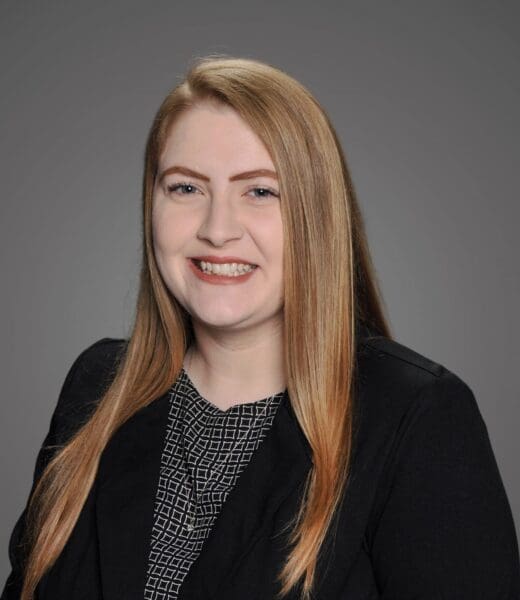
Meghan Rydzewski, MFT
Meghan Rydzewski, MFT
Coming to terms with our feelings and confronting our emotions alone can feel challenging. If you feel stuck, anxious, or isolated in any area of your life, you have come to the right place. As a therapist specializing in individuals, couples, and families, I am here to support you and be a guiding presence. Therapy…
Specialty Areas: Affairs and Infidelity, Career Counseling, Communication, Depression and Anxiety, Divorce, Eating Disorders, Grief, Loss, and Bereavement, LGBTQ+ Affirming, Life Transitions, Mood Disorders, OCD, Post-Traumatic Stress Disorder, Relationship Issues, Remarried/Blended Issues, Self-Discovery/Self-Analysis, Stress, Trauma, Women's Issues, Work/Life Balance
View Profile
Jagkirpal Channa, MFT, MS
Jagkirpal Channa, MFT, MS
Sometimes, life challenges us with painful experiences that can overwhelm us. These deep and untreated wounds can hinder one’s ability to be one’s true authentic self and live an empowered life. My goal is to provide my clients with a safe space to explore, challenge, and remove harmful patterns in their lives and create transformational…
Specialty Areas: Affairs and Infidelity, Anger Management, Career Counseling, Communication, Community Partnerships Initiative, Depression and Anxiety, Diversity Issues and Intermarriage, Divorce, Grief, Loss, and Bereavement, Interpersonal Violence/Abuse, Life Transitions, Men's Issues, Mood Disorders, Post-Traumatic Stress Disorder, Relationship Issues, Remarried/Blended Issues, Self-Discovery/Self-Analysis, Sex and Love Addiction, Stress, Trauma, Work/Life Balance
View Profile
Ray-Ling Hou, MSN, MFT, LMFT
Ray-Ling Hou, MSN, MFT, LMFT
Ray-Ling Hou is an American Association for Marriage and Family Therapy approved supervisor and clinical fellow. Ms. Hou’s clinical and scholarly interests include: supervision and training, cultural diversity, social justice, immigrant families, inter-racial relationships, adolescent transitions, international adoption and foster care, and trauma. Ms. Hou encourages people considering therapy to reach out to discuss fees…
Specialty Areas: Adoption, Affairs and Infidelity, Children with Special Needs, Depression and Anxiety, Diversity Issues and Intermarriage, Divorce, Grief, Loss, and Bereavement, Interpersonal Violence/Abuse, Parenting, Post-Traumatic Stress Disorder, Relationship Issues, Remarried/Blended Issues, Trauma
View Profile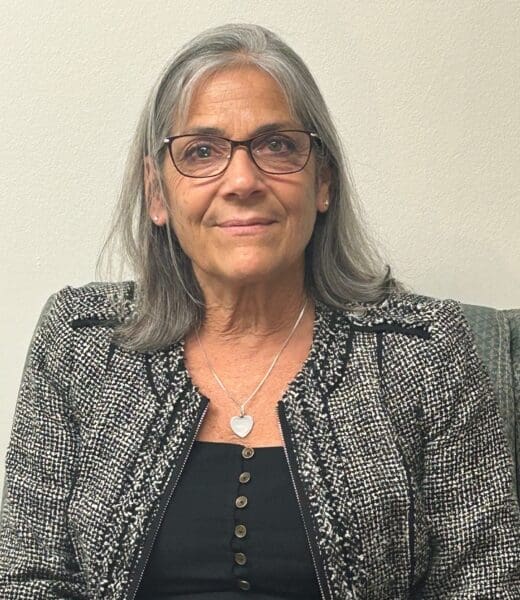
Priscilla Singleton, MSW, L...
Priscilla Singleton, MSW, LMFT, LCSW
Priscilla Singleton is a Licensed Clinical Social Worker and a Licensed Marriage and Family Therapist, a summa cum laude graduate of the Temple University Masters in Social Work program, a Clinical Member of the American Association for Marriage and Family Therapy (AAMFT), and an AAMFT approved supervisor. Ms. Singleton is trained in EMDR, Sandtray Therapy,…
Specialty Areas: Adoption, Children with Special Needs, Divorce, Grief, Loss, and Bereavement, Parenting, Remarried/Blended Issues, Veterans, Active Military, and Their Families
View Profile
Elyse Stein Batoff, MA, LMFT
Elyse Stein Batoff, MA, LMFT
Ms. Batoff is a licensed psychologist and licensed marriage and family therapist. Ms. Batoff works with individuals, couples, and families, and focuses on areas of rebuilding intimacy, sexuality, the aftermath of affairs, separation and divorce, remarriage and blended families, depression and anxiety, other mood disorders, menopause, and postpartum depression. Ms. Batoff is committed to helping clients explore and…
Specialty Areas: Affairs and Infidelity, Communication, Depression and Anxiety, Divorce, Mood Disorders, Relationship Issues, Remarried/Blended Issues, Sex and Love Addiction, Sexual Abuse, Sexual Difficulties, Trauma, Women's Issues
View Profile
Hannah Reiss, MFT
Hannah Reiss, MFT
Hi there! I’m Hannah, a systemically trained therapist passionate about helping people find meaning, alignment, and contentment in their lives. I understand that the issues you bring into therapy are as unique as you are, so I’ll tailor my treatment to fit your needs. Maybe you need some non-judgmental accountability as you finally face the…
Specialty Areas: Affairs and Infidelity, Anger Management, Communication, Depression and Anxiety, LGBTQ+ Affirming, Relationship Issues, Self-Discovery/Self-Analysis, Stress, Technology, Trauma, Work/Life Balance
View Profile
Kenneth W. Covelman, PhD
Kenneth W. Covelman, PhD
Dr. Covelman is a licensed clinical psychologist who maintains a diverse practice in individual, couples and family therapy. He has special interest and training in working with stepfamilies, families and couples dealing with chronic illness, and families with child-focused problems. He uses a family systems orientation in his therapy. Fee: $$$$ More information about fees can…
Specialty Areas: ADD and ADHD, Children with Special Needs, Chronic Illness, Parenting, Relationship Issues, Veterans, Active Military, and Their Families
View Profile
Peggy Roth, MSEd, LMFT
Peggy Roth, MSEd, LMFT
Ms. Roth is a licensed marriage and family therapist. She works with individuals and couples and focuses on problems of anxiety, trauma, depression, parenting issues, loss, and uses EMDR extensively. Ms. Roth uses EMDR to help unlock and re-process any trauma, relieve anxiety, panic, phobia, and depression. She believes that most behaviors and feelings in the present…
Specialty Areas: Depression and Anxiety, Grief, Loss, and Bereavement, Mood Disorders, Parenting, Stress, Trauma, Veterans, Active Military, and Their Families
View Profile
Stephanie Jacobs, EdS, PhD,...
Stephanie Jacobs, EdS, PhD, LMFT
Dr. Stephanie Jacobs is a licensed marriage and family therapist (NJ/PA) and encourages healthy relationships with God, self, and others. Assuming that people and relationships have the capacity to cope, grow, and change, Dr. Jacobs works with adult clients to elicit strength-based responses to life challenges, to make meaningful conclusions of life experiences, and to…
Specialty Areas: Communication, Diversity Issues and Intermarriage, Grief, Loss, and Bereavement, Life Transitions, Premarital Issues, Relationship Issues, Stress, Trauma, Women's Issues, Work/Life Balance
View Profile
Robert Murray, PhD
Robert Murray, PhD
Dr. Murray is a clinical psychologist who believes in the therapeutic use of forgiveness in addressing life’s hurts. Dr. Murray’s clinical focus includes anxiety, mood disorders, forgiveness, loss and grief, as well as spirituality and pre-marital preparation. Dr. Murray is also trained in EMDR, PREP Couples Communication, and grief recovery. Dr. Murray has over 25 years of experience as…
Specialty Areas: Communication, Depression and Anxiety, Grief, Loss, and Bereavement, Mood Disorders
View Profile
Charles C. Muorah, PhD, STL...
Charles C. Muorah, PhD, STL, LMFT
Therapy is where healing begins and caring never stops. If you’re willing to share, I’ve got a compassionate heart and emotional ears to listen to. My therapy goal is to walk the walk with you and empower you to be a leader in your life story, revealing a new meaning and context out of your…
Specialty Areas: Affairs and Infidelity, Anger Management, Communication, Depression and Anxiety, Diversity Issues and Intermarriage, Divorce, Grief, Loss, and Bereavement, Life Transitions, Parenting, Relationship Issues, Remarried/Blended Issues, Sexual Abuse, Stress, Trauma, Veterans, Active Military, and Their Families
View Profile
Sarah Valdivieso, LMFT
Sarah Valdivieso, LMFT
Ms. Valdivieso is an empathetic Marriage and Family Therapist who respects each client’s unique and individual journey. She believes that humans have an incredible capacity for resiliency and change. Ms. Valdivieso graduated from La Salle University with a master’s degree in Marriage and Family Therapy and is a licensed therapist who works with adults, couples,…
Specialty Areas: Addiction and Substance Abuse, Affairs and Infidelity, Communication, Depression and Anxiety, Interpersonal Violence/Abuse, LGBTQ+ Affirming, Life Transitions, Mood Disorders, Parenting, Post-Traumatic Stress Disorder, Relationship Issues, Self-Discovery/Self-Analysis, Sexual Abuse, Stress, Trauma, Women's Issues, Work/Life Balance
View Profile
Matthew CP Purinton, LCSW
Matthew CP Purinton, LCSW
Mr. Purinton practices individual, couple and family therapy as a social worker. His experience and areas of interest include depression, anxiety, children who have lost a loved one, and palliative care as a model of medicine to improve quality of life. Mr. Purinton is especially passionate about working with adults and children who are dealing with pain…
Specialty Areas: Children with Special Needs, Chronic Illness, Chronic Pain, Depression and Anxiety, Grief, Loss, and Bereavement, Sex and Love Addiction, Veterans, Active Military, and Their Families
View Profile
Esther Schlessinger-Mita, PhD
Esther Schlessinger-Mita, PhD
Dr. Schlessinger-Mita is a licensed psychologist in Pennsylvania who has been a therapist for over 30 years. Her areas of special clinical expertise include working with individuals to cope with anxiety, depression, mood disorders, and life transitions and adjusting to change. She helps adolescents and young adults with self-esteem issues, difficulties with peers, post-parental divorce…
Specialty Areas: Affairs and Infidelity, Depression and Anxiety, Divorce, Life Transitions, Mood Disorders, Parenting, Relationship Issues, Remarried/Blended Issues, Veterans, Active Military, and Their Families
View Profile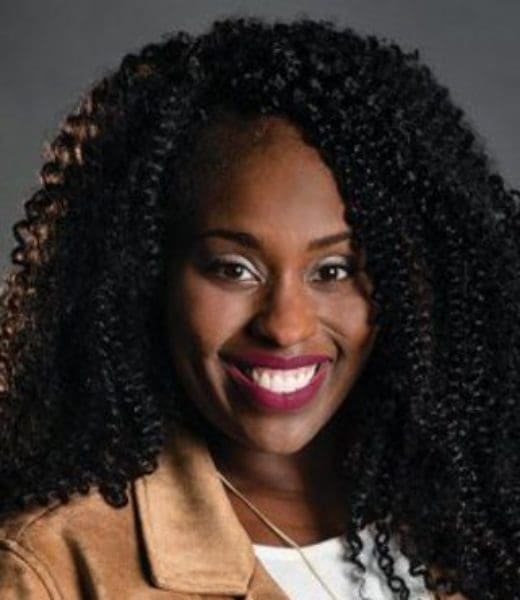
Chimère G. Holmes, MA, MSEd...
Chimère G. Holmes, MA, MSEd, LPC
Chimère views the therapeutic process as sacred, creative, and collaborative interactions between therapist and client. She seeks to assure that her clients feel seen, heard, educated, and validated while actively working through life’s myriad challenges and transitions. Chimère compassionately supports and connects with individuals, couples, and families through empathy, warmth, empirically supported interventions, and lighthearted…
Specialty Areas: Depression and Anxiety, Diversity Issues and Intermarriage, Divorce, Grief, Loss, and Bereavement, Life Transitions, Relationship Issues, Women's Issues
View Profile
Ingeborg K. Damstra, MD
Ingeborg K. Damstra, MD
Dr. Damstra is board certified in both Adult Psychiatry and Child and Adolescent Psychiatry, and she sees child, adolescent, and adult patients. Much of her practice focus is on anxiety and mood disorders in both children and adults and on ADHD and development disorders in children. Dr. Damstra offers psychiatric evaluation of children and adults,…
Specialty Areas: ADD and ADHD, Children with Special Needs, Depression and Anxiety, Parenting
View Profile
Sara J. Corse, PhD
Sara J. Corse, PhD
Dr. Corse is a dynamic clinical psychologist with over 30 years of experience working with individuals, couples and families. Clients are drawn to Dr. Corse for her engaging style, her deep caring and her effectiveness in helping clients resolve and heal troubling emotions and relationships. Her approach is integrative and includes the use of EMDR…
Specialty Areas: Affairs and Infidelity, Chronic Illness, Communication, Community Partnerships Initiative, Community Trauma Response, Depression and Anxiety, Diversity Issues and Intermarriage, Grief, Loss, and Bereavement, Life Transitions, Mood Disorders, Parenting, Post-Traumatic Stress Disorder, Relationship Issues, Remarried/Blended Issues, Stress, Trauma, Veterans, Active Military, and Their Families, Women's Issues
View Profile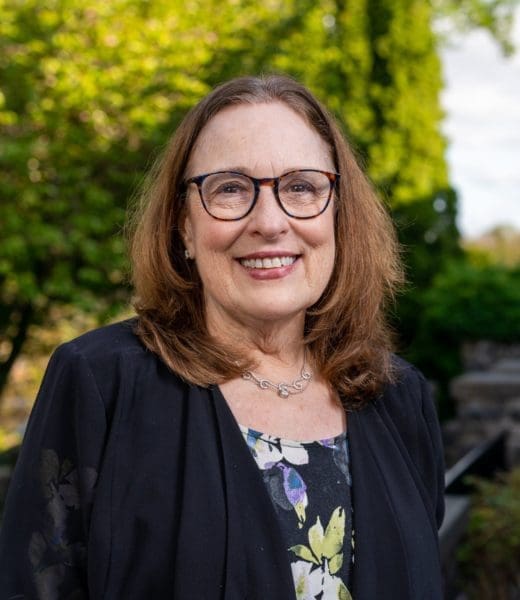
Susan Neumann Gordon, LSW, ...
Susan Neumann Gordon, LSW, MBA, LMFT
The therapist’s role is to create a safe and supportive environment in which clients can face and work on life’s challenges, which often occur at times of transition. Ms. Neumann Gordon integrates various therapeutic modalities to help clients more openly and creatively explore self-esteem issues, communication, conflict resolution, relationship building, and couple and family dynamics….
Specialty Areas: Affairs and Infidelity, Communication, Diversity Issues and Intermarriage, Grief, Loss, and Bereavement, Life Transitions, Parenting, Relationship Issues, Remarried/Blended Issues, Trauma, Veterans, Active Military, and Their Families
View Profile
Lia Pezzato, MFT
Lia Pezzato, MFT
Hello, I am Lia, a pre-licensed Marriage and Family Therapist. You have come to the right place if you have been sitting with discomforting feelings and need additional support. I work with various clients, such as individuals, couples, and families. I take on a supportive and collaborative role with my clients as a therapist. Through…
Specialty Areas: Communication, Depression and Anxiety, Eating Disorders, LGBTQ+ Affirming, Life Transitions, Parenting, Relationship Issues, Remarried/Blended Issues, Self-Discovery/Self-Analysis, Stress, Work/Life Balance
View Profile
Tracey Tanenbaum, M.Ed, LMF...
Tracey Tanenbaum, M.Ed, LMFT, AS
The decision to seek therapy is a difficult one, whether you are facing challenges that have been with you for years or have more recently emerged. Ms. Tanenbaum will help you find practical solutions to life’s obstacles and a deeper understanding of the emotional blocks that have held you back. She offers you focus, warmth,…
Specialty Areas: Chronic Illness, Chronic Pain, Grief, Loss, and Bereavement, LGBTQ+ Affirming, Life Transitions, Self-Discovery/Self-Analysis, Veterans, Active Military, and Their Families, Women's Issues
View Profile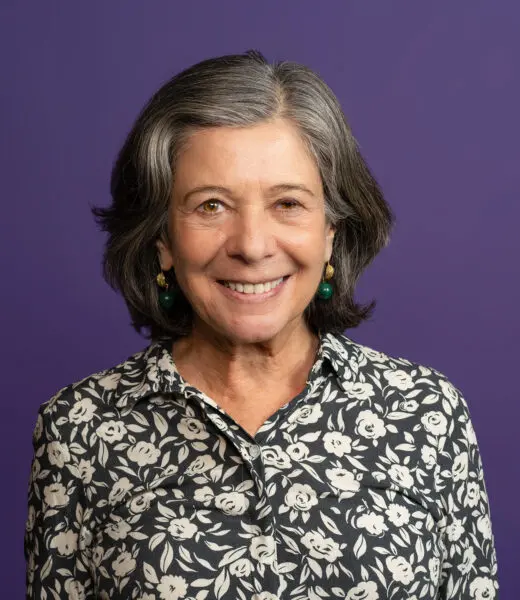
Jane Summers, MD
Jane Summers, MD
Dr. Jane Summers has specialized in women’s behavioral health throughout her career. She provides medication evaluation and treatment for clients treated by Council for Relationships therapists in our Women’s Psychological Health Services. Dr. Summers’ approach prioritizes understanding the unique issues that affect the emotional health of women such as reproductive health and hormonal changes over…
Specialty Areas: Chronic Illness, Depression and Anxiety, Infertility, Insomnia, LGBTQ+ Affirming, Mood Disorders, OCD, Women's Issues
View Profile
Veronica Haggerty, MA, RN, MFT
Veronica Haggerty, MA, RN, MFT
Veronica Haggerty is a Professional Counselor, Registered Nurse and Marriage and Family Therapist trained in many of the ‘best practice’ marriage and relationship education programs in the country. She knows the stages and pitfalls of marital intimacy in relationships and how, sometimes, this culminates into being stuck in doing the same things over and over…
Specialty Areas: Affairs and Infidelity, Anger Management, Chronic Illness, Communication, Depression and Anxiety, Divorce, Interpersonal Violence/Abuse, Parenting, Post-Traumatic Stress Disorder, Relationship Issues, Remarried/Blended Issues, Stress, Trauma, Work/Life Balance
View Profile
Courtney Ragin, LMFT
Courtney Ragin, LMFT
Courtney Ragin, LMFT is a licensed marriage and family therapist who works with individuals, couples, and families to support them in healing and developing healthy relationships where they feel seen and understood. She is passionate about helping people understand their life story and empowering them to create the life they desire. Courtney utilizes strength-based interventions…
Specialty Areas: Communication, Depression and Anxiety, Life Transitions, Parenting, Self-Discovery/Self-Analysis, Veterans, Active Military, and Their Families
View Profile
Kent Matthies, MFT, MDiv
Kent Matthies, MFT, MDiv
If you’re feeling down or stuck in life patterns that no longer serve you, you’ve landed in a space where positive change begins. I specialize in supporting individuals, families, and couples dealing with addiction, bringing the invaluable perspective of long-term sobriety to my practice. As an LGBTQ+ ally, I am passionate about creating a safe…
Specialty Areas: Addiction and Substance Abuse, Affairs and Infidelity, Artists and Athletes, Career Counseling, Communication, Depression and Anxiety, Diversity Issues and Intermarriage, Divorce, Grief, Loss, and Bereavement, Life Transitions, Men's Issues, Older Adults Program, Parenting, Post-Traumatic Stress Disorder, Relationship Issues, Remarried/Blended Issues, Self-Discovery/Self-Analysis, Stress, Technology, Trauma, Veterans, Active Military, and Their Families, Work/Life Balance
View Profile
Qianna S. Snooks, PsyD
Qianna S. Snooks, PsyD
One of the most powerful experiences a person can have is sitting across from another human being and feeling understood. In my work, I have embraced an integration of Psychodynamic and Systems therapies. I seek to understand the impact of the client’s unconscious wishes and drives, identify the coping strategies that they have available to…
Specialty Areas: ADD and ADHD, Depression and Anxiety, Diversity Issues and Intermarriage, Interpersonal Violence/Abuse, LGBTQ+ Affirming, Life Transitions, Post-Traumatic Stress Disorder, Self-Discovery/Self-Analysis, Sexual Abuse, Trauma, Veterans, Active Military, and Their Families
View Profile
Kerstin Miller, MDiv, LMFT
Kerstin Miller, MDiv, LMFT
Ms. Miller is a licensed marriage and family therapist and AASECT-certified sex therapist with a Master’s Degree in Theology/Pastoral Counseling. Ms. Miller is a certified EMDR therapist. EMDR is a trauma treatment method that Ms. Miller uses to explore the connection of mind and body with clients and to assist clients in managing stress and…
Specialty Areas: Chronic Pain, Communication, Depression and Anxiety, Relationship Issues, Sexual Difficulties, Stress, Trauma, Veterans, Active Military, and Their Families
View Profile
Laurel Roe, MS CHR, LMFT
Laurel Roe, MS CHR, LMFT
Laurel Roe understands we sometimes need help navigating life’s many challenges. Using a collaborative and relaxed style, she helps clients identify and utilize their strengths to move toward the goals they have for their lives. Whether working with individuals, couples, or families, she incorporates humor, mindfulness-based practices, and experiential techniques, as appropriate, to help clients better understand…
Specialty Areas: ADD and ADHD, Children with Special Needs, Chronic Illness, Depression and Anxiety, Learning Disorders, Life Transitions, Parenting, Relationship Issues, Remarried/Blended Issues, Trauma, Veterans, Active Military, and Their Families, Women's Issues
View Profile
Jennifer Trinh, MD
Jennifer Trinh, MD
I am a board-certified psychiatrist who provides psychotherapy and evidence-based medication management with a comprehensive treatment approach. My aim is to listen and connect with my patients to help them reach their individual goals while fostering an empathetic, warm, and respectful space. I have found that the ability to have your therapy and medication managed…
Specialty Areas: ADD and ADHD, Depression and Anxiety, Diversity Issues and Intermarriage, Grief, Loss, and Bereavement, Life Transitions, Mood Disorders, OCD, Self-Discovery/Self-Analysis, Stress, Trauma, Women's Issues, Work/Life Balance
View Profile
Michele M. Marsh, PhD
Michele M. Marsh, PhD
Dr. Marsh is a licensed psychologist and an AASECT-Certified sex therapist and sex therapy supervisor. Dr. Marsh focuses treatment on the specific needs of each individual, giving special attention to balancing the needs of each member of a couple. She encourages her clients to be open and direct about what they want from their significant others and…
Specialty Areas: Affairs and Infidelity, Communication, Depression and Anxiety, Diversity Issues and Intermarriage, Divorce, Grief, Loss, and Bereavement, LGBTQ+ Affirming, Life Transitions, Parenting, Relationship Issues, Remarried/Blended Issues, Sex and Love Addiction, Sexual Abuse, Sexual Difficulties, Trauma, Veterans, Active Military, and Their Families
View Profile